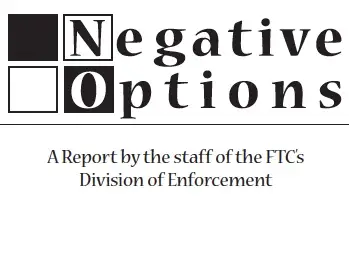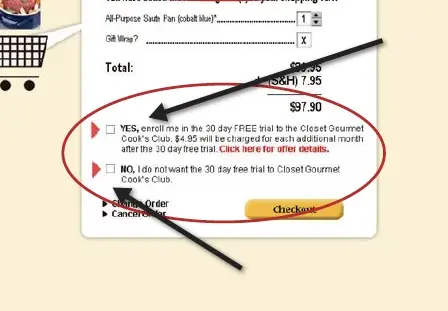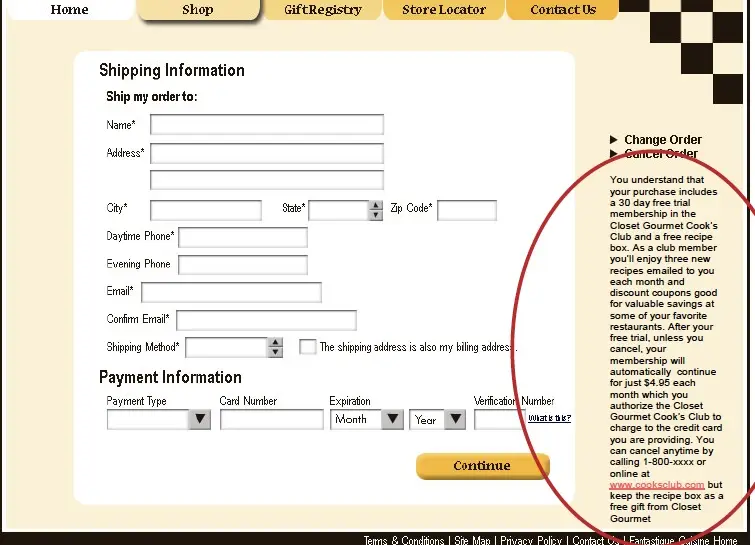FTC’s Negative Option Rule & Online Offers-Renewals. What You Should Know!
The Federal Trade Commission (aka FTC) has a rule called the Negative Option Rule, which I really think every SaaS and software company should know about.
The definition.
Negative Option means – when someone ‘fails to act’ (= silence) means they accepted a contract.
Q: Why Does the FTC Care?
A: Well, some companies use this concept to trick consumers into paying for something, without knowing the financial and cancelation terms (nothing you would do, of course).
Here are the FTC’s 5 Principles:
1) Disclose the Material Terms of the Offer in an Understandable Manner.
2) The Appearance of the Disclosure Should be Clear and Conspicuous.
3) Disclose the Material Terms BEFORE the Consumer Pays for or Incurs the Financial Obligation.
4) Obtain the Consumer’s AFFIRMATIVE CONSENT to the Offer.
5) Don’t Impede the Cancelation Procedure.
Let’s Look at Some Examples:
- bundle one service/product, with another service/product which auto-renews each month with a charge.
- trial, which converts to a paid service.
- service that auto-renews, without notice (your SaaS service or support renewal?).
Here is a screenshot from the FTC.
1) This version looks compliant (you have a choice to accept it or not).
2) This version does not look compliant (where is that specific consent to it, and it is kinda hidden over there on the right side?)
So think about this issue, if you are ever using your customer’s silence to accept a renewal or a bundled offer. Quite frankly, I think this is a good business practice, so you may already be compliant (but re-read those 5 principles above, because they are a great checklist!)
Resources:
1) Here is the FTC’s Entire Report on Negative Options. (72 pages) from January of 2009.
2) Summary of the Act(so you California based companies should take a read.)
Disclaimer: This post is for informational and educational purposes only, and is not legal advice. You should hire an attorney if you need legal advice, which should be provided only after review of all relevant facts and applicable law.



